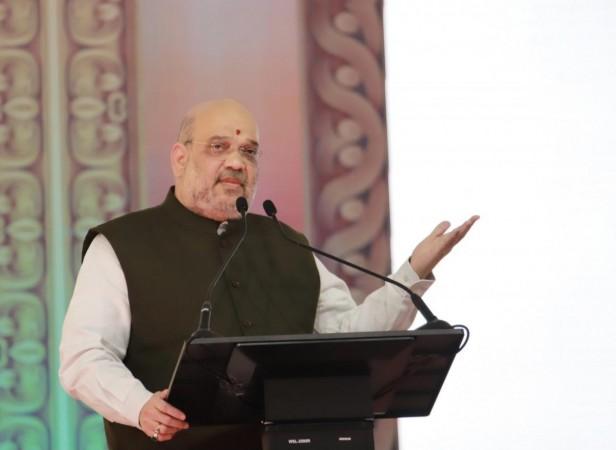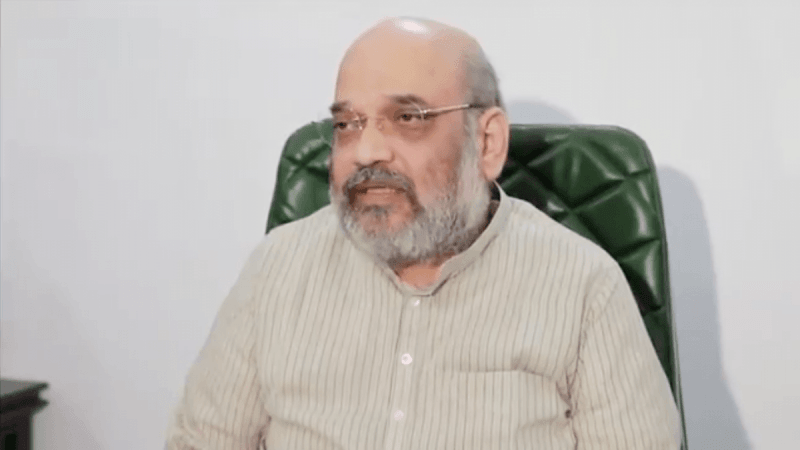The former national president of the BJP and the Union Home Minister, Amit Shah is considered a skilled strategist of electoral politics. The reason for this is not only the party's back-to-back victories in elections, but also his expertise to assess the voters as well as the leaders and the workers.
This is the reason why not only the opponents, but also many of his own party leaders lose their sleep, when Shah takes over the command of elections. The 'night meetings' of Amit Shah, who is constantly touring Uttar Pradesh, have once again created a similar atmosphere in the state.

Shah, after holding election rallies in various districts of poll-bound Uttar Pradesh throughout the day, chooses a particular area and stays there at night to hold meeting with party leaders. BJP leaders term it Shah's 'night meeting'.
Shah's "night meetings"
These meetings are the most important agenda of Shah's election campaign. In these 'night meetings', he interacts directly with the in-charge of the Assembly constituency and takes feedback on several matters.
Shah during the meeting discusses the electoral issues and equations of that particular region, including the caste equations necessary for electoral victory and other prominent polls related topics.

Based on the feedback received from the discussion, Shah then prepares a future course of action and gives necessary instructions to the workers and leaders.
How successful Shah's strategy has been so far can be gauged from the results of the 2014 and 2019 Lok Sabha elections and the 2017 Assembly elections. This is the reason why these meetings of Shah give sleepless nights to the opposition parties.
But as usual this time too, due to these night meetings, the opponents as well as even the BJP leaders have lost their sleep, especially the present MLAs because in these meetings Shah also takes ground feedback about the functioning and image of the present MLAs and these feedbacks play an important role at the time of ticket distribution.
In the 2019 Lok Sabha elections, tickets of several sitting MPs were cut on the basis of similar feedback.
Now, these meetings of Shah are giving sleepless nights to those BJP MLAs who were not much active in their areas or have failed to extend the benefits of government's schemes to the people or have failed in establishing better coordination with the organisation.
However, every time the reason for the ticket being cut is not only inaction, unpopularity or resentment among the voters about a particular candidate. A senior BJP leader said that sometimes the equation of a particular region or changing electoral issues also affects it.
Even in the 2019 Lok Sabha elections, the party had won the election by cutting the tickets of many of its popular MPs and fielding leaders from other parties and other leaders of their own party as candidates. Thus, the party later adjusted many of its MPs, who were not given tickets, in different roles and is now going to give some of them a chance in the upcoming Assembly elections.
During the recent election tours in Uttar Pradesh, Shah has held such night meetings in Lucknow, Varanasi and Bareilly. Similar meetings are likely to be held in many other parts of the state in the coming days.
In the 2017 Legislative Assembly elections, out of 403 seats in the state, the BJP alliance had won 325 seats. The BJP alone had won 312 seats. In 2022, the party is targeting to form the consecutive government.
As per the party's internal assessment, Yogi Adityanath is still the most popular face as Chief Minister, but there is widespread resentment against the sitting MLAs. In such a situation, the party is seriously considering to replace more than one third of its current MLAs to end the anti-incumbency atmosphere.
However, a final decision in this regard will be taken only at the party's Central Election Committee meeting in New Delhi. But the feedback received by Shah in the night meetings will also play an important role in selecting the candidates in the meeting, which is well known to all the MLAs of the party and the leaders who want to contest the elections.









!['Had denied Housefull franchise as they wanted me to wear a bikini': Tia Bajpai on turning down bold scripts [Exclusive]](https://data1.ibtimes.co.in/en/full/806605/had-denied-housefull-franchise-they-wanted-me-wear-bikini-tia-bajpai-turning-down-bold.png?w=220&h=138)



